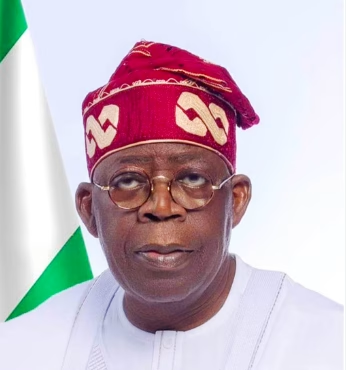Nigeria’s Overreliance on Western Aid and the Threat to Our Sovereignty

Hassan A. Karofi
In recent years, Nigeria’s increasing dependence on Western aid has raised serious concerns about our national sovereignty and our ability to adequately protect our citizens’ welfare. This reliance not only undermines our sovereignty but also jeopardizes our capacity to address pressing social, economic, and political challenges effectively.

Hassan A. Karofi
Indices of internal strife and resulting human suffering indicate that, as of December 2023, the Displacement Tracking Matrix reported approximately 3.4 million internally displaced persons (IDPs) across Nigeria, largely due to conflicts in the Northeast, Northwest, and North Central regions. Of these, over 1.3 million individuals rely on the World Food Programme for basic necessities.
How can a government that allocates over N790 billion in 2024 for the salaries of fewer than 400 legislators turn to foreign powers to feed 1.3 million displaced citizens?
These IDPs, including women and children, have been severely affected by ongoing humanitarian crises. The crisis is compounded by displacement in the Southeast and South-South regions due to violence involving Ambazonian separatists from Cameroon and the Indigenous People of Biafra’s agitation.
Estimates suggest that by July 2025, over 5 million Nigerians could be displaced due to insecurity, with homes overrun by bandits and terrorists. This situation poses a dual threat: it challenges national security and raises questions about our sovereignty when over 90% of these IDPs rely on aid from Western nations for survival.
This has raised concerns about the government’s capacity to make logical and reasonable decisions amid numerous challenges. For example, how can a government that allocates over N790 billion in 2024 for the salaries of fewer than 400 legislators turn to foreign powers to feed 1.3 million displaced citizens?
Over 18 Alibaba million out-of-school children is another shameful statistic in a nation where over N15 trillion was allegedly stolen in 2024 in the oil and gas sector alone
The recent announcement of a 70% cut in World Food Programme funding has intensified fears and uncertainty within the Nigerian government, already burdened by previous cycles of financial withdrawal from Western assistance as focus shifts to crises like those in Ukraine and Gaza.
While these funding cuts present immediate challenges, they also offer a vital opportunity for the Nigerian government to reclaim its sovereignty and shift toward self-reliance. Past experiences highlight our capacity to rise to the occasion. During the COVID-19 pandemic in 2020, Nigeria saw the successful establishment of the Coalition Against COVID-19 (CACOVID), led by influential businessman Aliko Dangote.
This initiative raised over N28 billion, providing food support to more than 100 million Nigerians. Such grassroots efforts can serve as templates for addressing our current humanitarian crises.
Another notable initiative is the Victims Support Fund, spearheaded by General T.Y. Danjuma, which raised over N54 billion to assist internally displaced persons. Both initiatives demonstrate that with political will and local commitment, Nigeria can tackle its developmental challenges without surrendering its sovereignty to external aid.
It is the government’s primary responsibility to ensure the welfare and security of its citizens. With a budget of over N61 billion earmarked for feeding at the State House and additional substantial allocations for state government residences, Nigeria has the means to mobilize domestic resources to address humanitarian needs without dependence on foreign assistance.
Overdependence, the Nigerian government must adopt innovative strategies that emphasize local solutions to our developmental challenges
To regain its independence, reduce reliance on foreign development aid, protect its sovereignty, and ensure the protection of its citizens, Nigeria needs basic common sense. The misappropriation of resources has always been the nation’s greatest enemy. Fiduciary irresponsibility in public expenditure, fueled by corruption and enabled by impunity, has exposed the country to fragile susceptibility, leading to its overdependence on Western support, even for basic interventions like feeding its displaced people.
The over 18 Alibaba million out-of-school children is another shameful statistic in a nation where over N15 trillion was allegedly stolen in 2024 in the oil and gas sector alone, according to the Foundation for Investigative Journalism. The pervasive corruption in all facets of public life in Nigeria is so glaring that the International Corruption Perception Index ranked the nation as the 36th most corrupt country in the world.
As a global power in oil and gas, and despite its colossal mineral and human resources, Nigeria remains the “poverty capital of the world,” a notorious title it has held since 2016, according to the World Bank.
These disturbing statistics could continue as the nation becomes notorious for its negative aspects. Yet, we continue to squander abundant resources and go cap in hand, soliciting support from Western and other donor countries in a shameful gesture that exposes us as an inept and unserious nation governed by an incompetent political class.
Recent announcement of a 70% cut in World Food Programme funding has intensified fears and uncertainty within the Nigerian government
As we lament our reckless overdependence on Western nations, we will continue to suffer a deteriorating security situation and a fragility of the components of independence until, God forbid, we can no longer hold the fabric of this nation together. The only way to stop this is for all stakeholders in the Nigerian enterprise to resolve to salvage this nation and apply its God-given resources for the benefit of the people.
To address this overdependence, the Nigerian government must adopt innovative strategies that emphasize local solutions to our developmental challenges. By doing so, we can strengthen our national security, enhance our autonomy, and ultimately create a sustainable framework for addressing the development challenges facing our nation.
Hassan A. Karofi is a PhD candidate at Bingham University, Karu, and can be contacted at hassankarofi@yahoo.com.
Read Also: Atiku Abubakar: Nigeria’s most resilient politician still banks on the North for 2027
Sign up for The Insight Newsletter
Get in-depth, research and data-based interpretative reports from around Nigeria.



